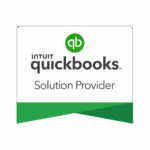The glamor of owning a business seems to be in suspense when business owners face the inevitable fiscal year accounting tasks. As a legal requirement, it must be sorted but that need not dampen your Christmas mood as outsourcing to a competent bookkeeping firm allows you to enjoy your Christmas festivities with the family.
Of course, a business year does not end on December 31st. A fiscal year end can be the end of any quarter, but most end March 31, due to the IRS stating a fiscal year is “12 consecutive months ending on the last day of any month except December 31st.” The fact is, closing your company books is probably the most important end of year financial task a business owner undertakes no matter what quarter you choose to do it in.
Why is it even Important to the Business?
Among many other reasons, these under-listed stand out as sufficiently compelling for you to engage the services of a bookkeeping firm to close your books and help cut out avoidable accounting issues.
• Streamlines the accounting reports for your company’s financial activities throughout the year under review while calculating the balances that will be entered into the next year’s records.
• Streamlines tax reports for efficient reporting to avoid unnecessary issues.
• Streamlines accounts so as to provide cohesive reporting of the balance sheet, income statement and cash flow.
You can avoid rule-of-thumb calculations and use actionable data to run your business as the statistics gleaned from these reports provide a snapshot of the inflow and outflow.
Three Important Reports
• Balance Sheet: This provides a high-level snapshot of the company’s financial health at any the desired time.
• Profit and Loss (P&L) Statement: Also known as the Income Statement, the P&L highlights the company’s net income by indicating its revenue, costs and expenses within a given timeframe. Its importance is highlighted by its use in calculating the company’s taxable income.
• Cash Flow Statement: This highlights activities in the business areas of operations, investing and financing. Primarily, it contains records of the company’s transactions, both incoming and outgoing.
The entire fiscal end of year period may provide a headache for many business owners but the savvy ones just go ahead and enjoy the period while their professional bookkeeping consultants tidy up the accounts. It is a sure win for the business and its owner.
For more information on how you can have your financial books done for you contact BooXkeeping today!






